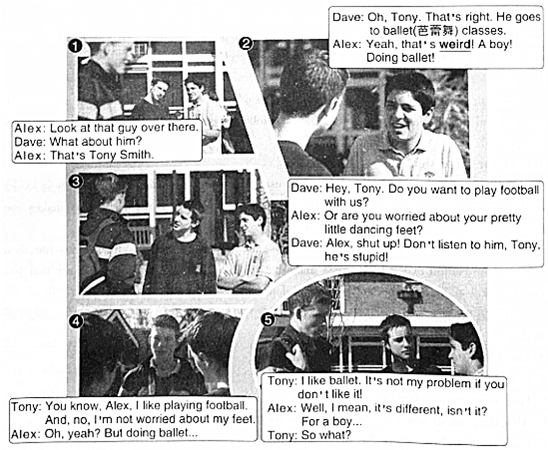4. Every time you're online, you are bombarded (如炮轰)by pictures, articles, links and videos trying to tell their story. (1)
Read these tips, and don't get fooled by fake news!
1. Check the source (来源)
(2)
Does it look real?Is the text well written?Fake news websites often use addresses that sound like real newspapers, but don't have many real stories about other topics.
2. Watch out for fake photos
Many fake news stories use images (图像)that are Photoshopped or taken from an unrelated site. Sometimes, if you just look closely at an image, you can see if it has been changed. Or use a tool like Google Reverse Image search.
3. (3)
Look to see if the story you are reading is on other news sites that you know and trust. If you do find it on many other sites, then it probably isn't fake( although there are some exceptions).
4. Look for other signs
There are other methods that fake news uses. These include using ALL CAPS (全大写) and lots of ads that come out when you click on a link. (4)
If the news story makes you angry, it's probably designed to make you angry.
If you know these things about online news, and can use them in your everyday life, then you have the control over what to read and what to believe. If you find a news story that you know is fake, the most important advice is:don't share it!
根据短文内容, 从下列选项中选出能填入文中空白处的最佳选项, 选项中有一项为多 余选项.
A. Check the story is in other places.
B. Unluckily, not all of these stories are true.
C. Fake news stories often spread much faster.
D. Also, think about how the story makes you feel.
E. Look at the website where the story comes from. |




